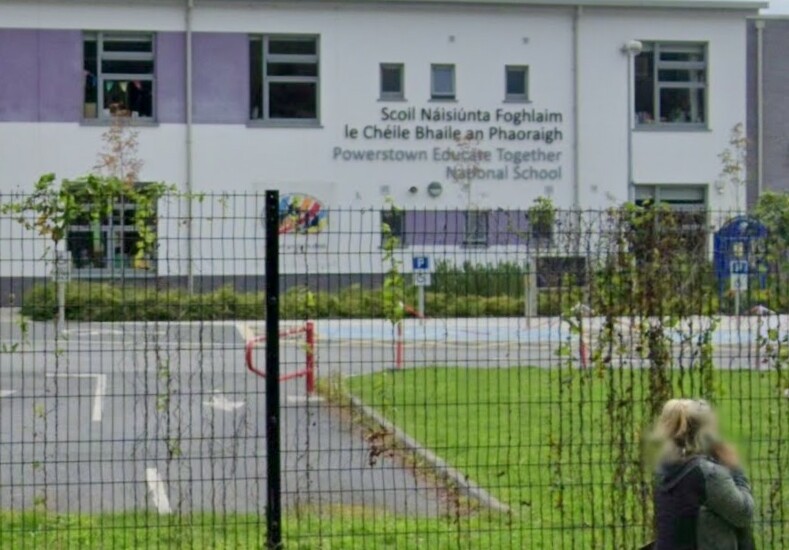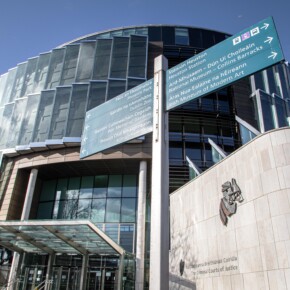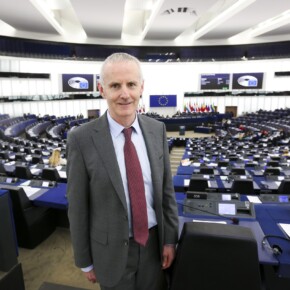“Systemic failure” – Dublin 15 schools call for resources
Mike Finnerty 01 May 2024
Over 100 children with additional needs in Dublin 15 are being denied the support they need according to a local principal.
Helena Tranch, principal of the Powerstown Educate Together National School, said the situation was “not acceptable” and called on Government to provide the support she states is necessary to help the children with additional needs.
Speaking to Northside People, Tranch said that the situation “isn’t even like a lottery” when it comes to allocation of resources, and is more akin to a “systemic failure.”
A March public meeting in Dublin 15, organised by Labour councillor John Walsh, outlined the gravity of the situation.
At least 13 children in Dublin 15 have no appropriate school placement for September and 111 children in primary schools are struggling to engage “meaningfully” with staff and peers due to a lack of services and specialised staff to support schools.
Local principals were asked to fill out a survey discussing what exact resources were needed to tackle the problem, and 68% of schools surveyed said that they were facing a reduction in special education training hours in the upcoming school year.
Overall, the reduction in training hours translates to the loss of 4 permanent special education teaching posts between 13 schools.
In February, the Department of Education confirmed that children with complex needs no longer met the criteria for SET hours.
Dublin Central Social Democrats TD Gary Gannon said in February that the reduction of SET hours was “dangerous and completely illogical.”
“Removing the number of pupils who require – and are legally entitled to – extra educational supports from the criteria for allocating extra educational supports makes absolutely no sense,” Gannon said, who serves as the party spokesperson on education.
On the ground, Tranch said that the situation has gotten “progressively worse” since 2019, and that a self-imposed embargo on recruitment by Government is making the issue more pronounced.
“The backlog is very high,” Tranch noted.
2023 statistics from the HSE found that 4,269 people had applied for an assessment of need in Dublin 15.
June 2023 statistics found that the waitlist stood at 2,829, while an additional 1800 people were “overdue” for an assessment of need appointment as of June 30 last year.
Statistics for Blanchardstown found there was a 4-year waiting list for an appointment, while the figure jumped to 7-and-a-half-years in Blakestown.
Across Dublin 15, the waiting lists for basic psychiatric appointments are years long.
There is an 18-month waiting list for access to psychology services, a 41-month wait for a block of speech and language therapy sessions, and a 2-year waiting list for occupational therapy appointments.
Tranch noted it costs “thousands” for children to be seen privately and given a diagnosis, and the principle of educational psychologists not being more widely available to children is “ridiculous.”
“When I speak to parents, they really hope for the system to change,” she said.
Tranch warned of the dangers of children not being screened early for neurodivergent conditions which range from autism spectrum disorder, ADHD, dyslexia or dyspraxia among a range of other conditions.
She says there are cases of students who are in 5th class who have not been seen since an early diagnosis of their condition.
“What these children need are the most basic needs; the ask isn’t that big,” she said.
She said the best-case scenario for this situation was school places being made available in September, but she said it did not address the wider issues; she stated that a more coherent model is needed, and funds should be freed up from the Department of Finance to change thesituation.
“We have known since last October that this was going to be an issue for the 2024/25 academic year; it should not be taking until the end of May until we find out what the final outcome will be,” she said.
Labour councillor for Castleknock John Walsh also attended the meeting and expressed frustration with the situation.
Walsh told Northside People that the situation was one of “neglect” and indicative of a “lack of planning” from the Department of Education.
Walsh stated that the crisis has been rumbling on since 2018 in some capacity and has “never gone away.”
“There are few too many special classes afforded to students, not just in Dublin 15, but across Ireland as a whole,” he said.
The Labour councillor echoed Tranche’s claims that an embargo on recruitment is a major factor in the crisis.
“There is a failure on Government’s part to solve this issue,” he said, and pointed to 2022 comments made by Minister of State for Special Education Josephia Madigan as a sign of Government apathy towards the issue.
In June 2022, Madigan alleged that a number of Dublin 15 schools had failed to engage with the Department of Education’s requests to provide classes for children with autism.
Walsh accused Madigan of “naming and shaming” schools that did not comply with the Department’s requests and said that Madigan was looking to shift the blame to schools in a bid to distract from her own failings as Minister.
He said that schools are “effectively left to their own devices without any real support.”

Labour councillor John Walsh
Walsh pointed to the School Inclusion Model as a solution to the issue, which received tacit Government support in 2019 but has since been put on the back burner.
Then-Minister for Education for Education Joe McHugh said of the model “inclusion and access are a core value of our education system. We want every child to have the opportunity to learn and develop as well as they can and to get the supports they need to do that.”
“The trial of this innovative School Inclusion Model will test and evaluate broader and more holistic education and health supports for children with special and additional care needs,” he said in August 2019.
Walsh said that the current system is “fundamentally broken,” and that a “coherent, holistic solution” needs to be put into place.
“Principals should not have to provide the detailed analysis of the shortfall in school places and services for children with additional needs that should be done by the Department of Education,” he said.
“What we are seeing here is a real failing of joint-up thinking from the various Government departments,” he said.
The Castleknock councillor said that ever since Fine Gael took over the Department of Education brief in 2016, and transferred control to Fianna Fáil in 2020, the situation has become “much worse.”
“Schools have done absolutely everything they can do fix this situation, but it has become clear they can only do so much; it is time for the State to step in and rectify the situation.”











